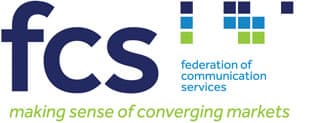News
improve call center inbound call handling
Posted in Industry on 15th August 2023
Improving call center inbound call handling is crucial for delivering excellent customer service and enhancing customer satisfaction. Here are the top ways to achieve this:
Comprehensive Agent Training:
Provide thorough training to call center agents that covers not only product knowledge and technical skills but also emphasizes communication skills, active listening, empathy, and problem-solving. A well-trained agent is better equipped to handle a variety of customer inquiries effectively.
Optimize Call Routing:
Implement intelligent call routing systems that direct callers to the most suitable agent or department based on their needs. This reduces the need for transfers, minimizes wait times, and ensures that customers are connected to agents with the right expertise.
Personalized Service:
Equip agents with tools and information that allow them to access caller history, preferences, and previous interactions. This enables agents to provide a personalized experience, addressing customers by name and demonstrating knowledge of their past interactions.
Empower Agents with Decision-Making Authority:
Allow agents to make decisions and resolve issues within a certain scope without unnecessary escalation. This reduces the need for customers to be transferred multiple times and speeds up issue resolution.
Continuous Quality Monitoring and Feedback:
Regularly monitor and evaluate calls to ensure that agents adhere to best practices, follow scripts accurately (if applicable), and provide high-quality service. Provide constructive feedback and coaching to help agents improve their skills and address areas that need development.
Implement Self-Service Options:
Provide self-service options such as interactive voice response (IVR) systems and online knowledge bases. This allows customers to find information and solutions on their own, reducing the volume of incoming calls and allowing agents to focus on more complex issues.
Real-Time Assistance:
Implement real-time assistance tools, such as instant messaging or internal chat systems, that enable agents to seek help from supervisors or subject-matter experts while on a call. This ensures accurate information is provided to customers promptly.
Measure and Optimize Key Metrics:
Track important call center metrics, such as average wait time, average handle time, first call resolution rate, and customer satisfaction scores. Use these metrics to identify areas for improvement and set performance targets.
Empathy Training:
Train agents to show genuine empathy and emotional intelligence when interacting with customers. This helps build rapport and reassure callers that their concerns are being heard and addressed.
Feedback Loop with Customers:
Encourage customers to provide feedback after their interactions. This information can be invaluable for identifying trends, improving agent performance, and making necessary adjustments to call center processes.
Implement Customer-Centric Technology:
Invest in customer relationship management (CRM) systems and call center software that streamline call management, provide detailed customer profiles, and enable agents to access relevant information quickly.
Regularly Update Call Scripts:
If call scripts are used, review and update them periodically to ensure they reflect the latest information, are clear and concise, and allow for natural-sounding conversations.
By implementing these strategies, call centers can enhance their inbound call handling processes, provide exceptional customer experiences, and ultimately contribute to improved customer satisfaction and loyalty.


